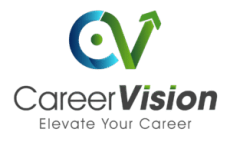In the competitive job market, standing out often feels like trying to find a needle in a haystack. But what if I told you that the best way to showcase your skills and value is by sharing your unique life stories? Storytelling is not just for authors and filmmakers; it’s a powerful tool for mid-career professionals looking to leverage their experiences during job applications and interviews. Let’s dive into how you can transform your personal narratives into professional advantages!
The Power of Personal Stories
Have you ever noticed how a good story captivates an audience? Whether it’s at a dinner party or during a job interview, stories draw people in, making them relatable and memorable. When you share your life experiences, you connect with your interviewers on a human level, transforming abstract skills into tangible stories. Remember when I was pivoting from product leadership to coaching? I shared how my setbacks led to resilience, and it resonated deeply with potential employers. For more on the importance of storytelling in interviews, check out this article on the best job candidates.
Identify Your Key Themes
Your stories should reflect themes that highlight your skills. Consider the following:
- Resilience: Discuss a challenge you faced and how you overcame it.
- Leadership: Share an instance where you led a team through a tough project.
- Collaboration: Talk about a time you worked with others to achieve a common goal.
For example, I once led a cross-functional team during a major product launch. The project had its fair share of hurdles, but my storytelling of that journey impressed interviewers and showcased my leadership and collaboration skills. For more insights on storytelling, you can read about cracking interviews with personal storytelling.
Crafting Your Narrative
Once you’ve identified your themes, it’s time to structure your story. Here’s a simple framework to follow:
- Situation: Set the scene. What was happening?
- Action: What did you do? Focus on your contribution.
- Result: What was the outcome? Quantify if possible.
This STAR method not only makes your stories compelling but also ensures you highlight your achievements effectively. When I was asked, “Tell me about a time you faced a challenge at work,” I didn’t just recount a struggle; I framed it using this structure which made my experience resonate. Check out more on structuring your interview stories to enhance your preparation.
Practice Makes Perfect
Let’s be real; storytelling isn’t something you can just wing on interview day. Practice is key! Here are a few tips:
- Rehearse: Tell your story to friends or family. Get their feedback and refine your narrative.
- Embrace Feedback: Use constructive criticism to improve.
- Record Yourself: Listening to your own stories can help identify areas for clarity and engagement.
Trust me, the more you practice, the more natural it becomes. I once bombed an interview because I was unprepared to weave my stories into my responses. Now, I can effortlessly share my journey without sounding robotic.
Busting the Myths of Storytelling
Many people believe storytelling is just about being charismatic. Let’s clarify, it’s not about spinning tall tales or being overly dramatic. Authenticity is key. Here are common myths:
- Myth 1: You have to be a great speaker. Not true! Authenticity beats eloquence any day.
- Myth 2: Your stories should be long. Short and impactful wins over long-winded tales.
- Myth 3: Only personal experiences matter. Professional experiences can be just as powerful.
By busting these myths, you’ll feel more confident in sharing your journey and showcasing your real self.
Conclusion
Storytelling is more than just a communication tool; it’s a crucial strategy in today’s job market. By leveraging your personal experiences, you can showcase your skills and value in a way that resonates with potential employers. So, take the time to craft your narrative, practice it, and embrace the power of storytelling. Your next job opportunity might just be a story away!
Want real-time advice you can use? I run a free Job Search Strategy Workshop – come for the tips, stay for the community. It’s live, it’s free, and it actually helps.

